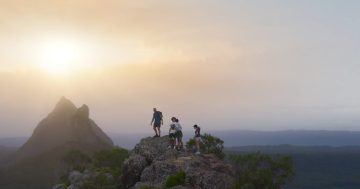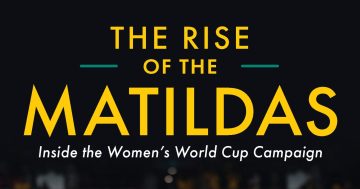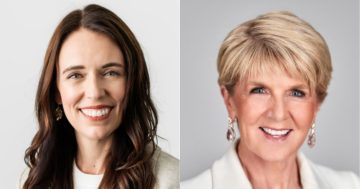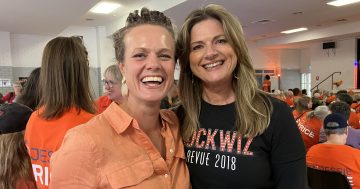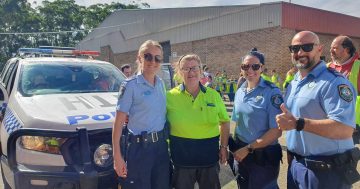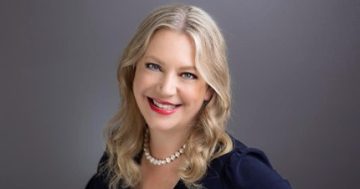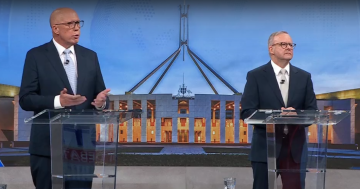Brianna Boecker* says a Coalition of 25 advocates wants to transform representation at International Women’s Day events to include the women who feel left out.
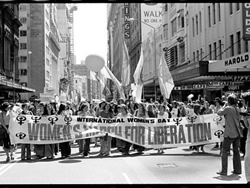 International Women’s Day (IWD) is coming up on 8 March, but many women from diverse backgrounds don’t expect their voices to be included in the month-long celebrations across the country.
International Women’s Day (IWD) is coming up on 8 March, but many women from diverse backgrounds don’t expect their voices to be included in the month-long celebrations across the country.
Australian IWD celebrations often centre white, non-disabled and straight women, and a recent national survey of 419 women, trans or gender-diverse and non-binary people revealed that almost 7 in 10 respondents don’t feel represented at IWD events, panels or in the media.
Half of these respondents indicated having at least two intersecting identities and being from racialised, minoritised or marginalised communities such as First Nations, refugees, people with a disability, women of colour, culturally and linguistically diverse (CALD) and LGBTQIA+.
The launch of this illuminating survey is a part of the More Voices, More Representation campaign– a coalition of 25 Australian advocates and organisations joining forces to create an IWD that has greater intersectional representation and that celebrates all women.
Among the campaign partners are names like Yasmin Poole, an award winning youth representative, who sees IWD as a “critical opportunity to set the international agenda on how we can build a path to gender equity.”
“[The problem] is intersectional and complex, running deep within our systems and history.
“It branches out, connecting with so many other inequalities that affect our societies today, from racism, to poverty, to homophobia.
“To understand this bigger picture, it is crucial that we have intersectional voices at the table, across race, class, disability, age and so forth.”
The More Voices, More Representation campaign survey reveals that over 4 in 5 women of colour feel excluded from IWD celebrations in Australia and only a quarter of respondents with a disability feel represented.
Twenty-seven per cent of Aboriginal women reported not feeling like IWD in the past years have celebrated or honoured them.
And only the Aboriginal women who celebrated IWD within their own community felt represented.
Of the other groups that reported not feeling represented on IWD were 79 per cent of CALD women, 75 per cent of immigrant women and 79 per cent of those who identified as LGBTQIA+.
So, what can be done to improve this lack of representation and inclusivity on IWD?
The survey polled respondents on how to answer this question and 31 per cent think there needs to be more women in IWD celebrations with lived experience to shed light on the issues that women face, especially women with intersectional identities.
Another suggestion from 20 per cent of respondents was that IWD events should empower participation on panels and at events by paying Indigenous, Black, Women of Colour and non-binary folk for their labour, time and expertise.
Addressing this issue of many IWD events lacking compensation, accessibility and requiring a certain level of financial privilege, Hannah Diviney, the Editor in Chief of Missing Perspectives says “if Australia really wants to be seen as truly celebrating, they need affordable accessible diverse events that engage the stunning variety of who Australian women are, especially in marginalised communities”.
“March 8th every year should be a beacon of community, inclusion, lived experience, representation, empowerment, and policy for all of us who identify as women in this country,” says Diviney.
Fellow campaign partner, founder and director of Welcome Merchant, Marjorie Tenchavez echoes this sentiment, saying she’s “tired of hearing the same stories” and “seeing the same faces” when she’s attending IWD events, adding that she often feels like “the token person of colour.”
“Representation matters.
“It has the immense power to shape ideas.
“What the next generation sees around them positively or negatively shapes their expectations for themselves and others,” says Tenchavez.
“I believe this campaign has the power to change the narrative, to hold gatekeepers accountable and to make us check our own biases.”
*Brianna Boecker is an Associate Publisher with Women’s Agenda.
This article first appeared at womensagenda.com.au



